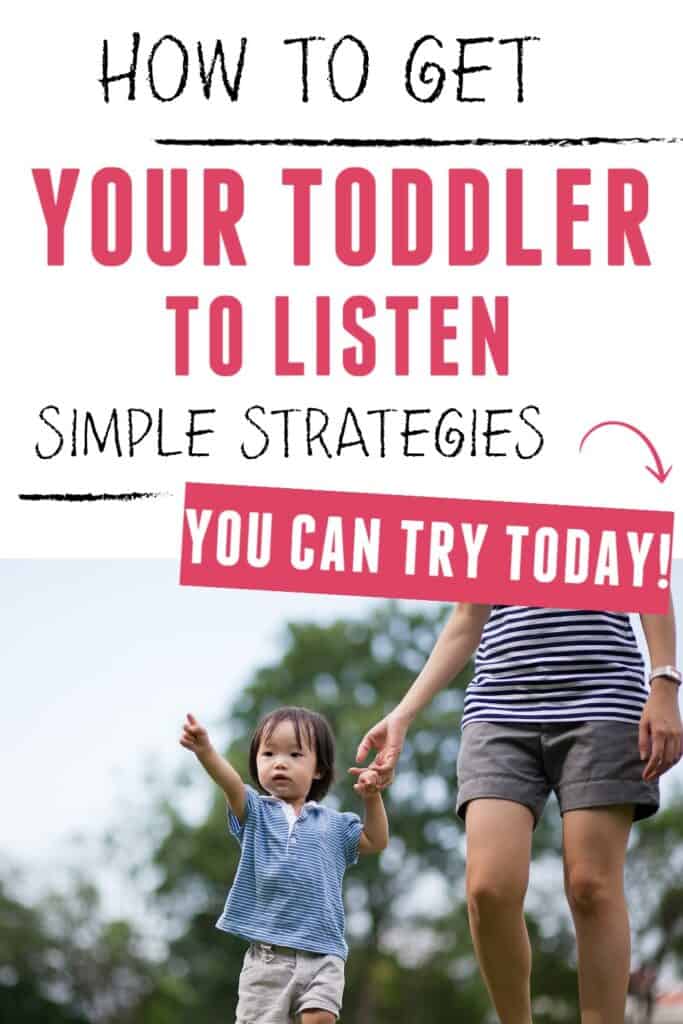Tired of feeling like your kids just won’t listen?
Let’s flip the script!
Instead of thinking they’re being difficult, remember this: listening is a skill that needs practice!

Understanding Where your Toddler is at
Consider where your little one is, especially if they’re one or two years old.
They’re learning to talk, and listening is part of that amazing process.
It’s all about receptive language development.
They need to understand and process all the words they’re hearing.
Sounds like a lot, right?
For toddlers, listening is not just about hearing words; it’s about comprehending and reacting to them.
This process requires time, patience, and plenty of practice.
As parents, our role is to provide opportunities for our children to develop this vital skill.
Incorporate Listening Practice into Daily Routines
So, how can we help them practice without adding extra stress to our day?
Here’s the good news: you don’t have to carve out special time for listening practice.
Instead, weave it into what you’re already doing.
It’s all about making it a habit!

Turn Chores into Fun Games
Imagine this: you’re folding laundry.
Turn it into a fun and educational game!
Ask your child, “Can you find a sock in the laundry basket?”
While they’re searching, you can quickly fold a few things.
Easy, right?
As they get the hang of it, up the ante! Next, try something like, “Can you find a red shirt in the laundry basket?”
This simple activity not only helps you get the chores done but also gives your child valuable listening practice in a fun and engaging way.
Use Meal Prep as Learning Time
Another great opportunity is during meal prep.
Ask your toddler to help you by giving them simple instructions like, “Can you pass me the spoon?” or “Can you put the napkins on the table?”
These small tasks can make them feel involved and important, all while honing their listening skills.
Bedtime Routine
Bedtime routines are another excellent time to practice listening.
While reading a bedtime story, see if they can point at different things within the pictures.
This simple activity will help your child focus and actively listen while improving their comprehension skills.
Be Patient and Encouraging
Remember, developing listening skills takes time.
Be patient with your child as they learn and praise their efforts along the way.
Final Thoughts
Keep practicing, stay patient, and watch those listening skills blossom!
Remember, the goal is not perfection but progress.
Celebrate the small wins and keep encouraging your child every step of the way.
By incorporating these simple strategies into your daily routines, you’ll not only make chores and tasks more enjoyable but also provide your child with the necessary practice to develop strong listening skills.
Get more EASY ideas like this HERE.

Related Posts You Will Enjoy
7 Low Pressure Way to Introduce the Potty to Your Toddler
How to Get Your Toddler to Try New Food
Why Toddlers Have Tantrums and How to Deal With Them


Kayla O’Neill has a master’s degree in education as well as a bachelor’s degree in special education with an emphasis in early childhood education. She has been working as a developmental therapist with babies and toddlers in early intervention since 2012. She is also a mom with two young children.